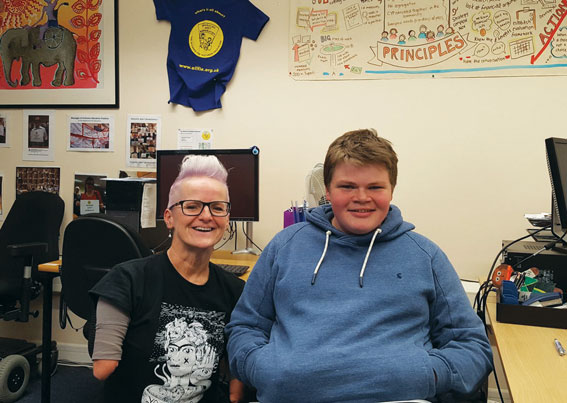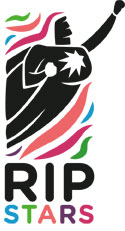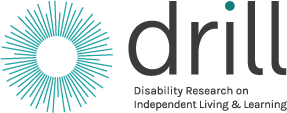“Plans made for us, not by us”
A team of Disabled young people tell us about their research into how well Education, Health and Care Plans are working.

We are a research team called RIP:STARS. This stands for Research into Plans: Skilled Team with Ambition, Rights and Strength. We are all disabled young people aged 16 to 25 and we are from Coventry.
We have been funded by DRILL (Disability Research on Independent Living and Learning)/Big Lottery to research the quality of Education, Health and Care (EHC) plans, and whether they meet disabled children and young people’s rights. We also want to find out whether plans prepare disabled children and young people for independent living and help them achieve their dreams for the future. We are interviewing professionals, parents/carers and disabled young people to see what a good plan should really be. Coventry University are training us in research methods and helping us with the research. We are also working with ALLFIE, Nottinghamshire and Coventry local authorities, Zara Todd and Grapevine Coventry.
Our project is about improving EHC plans and how they are written. It is also about improving access to support within EHC plans and raising awareness of disabled young people’s rights. Often young people and their parents do not know that they have rights as children, and as disabled people. We want to make sure that disabled young people have a real say about what is in their plan.
This project is also about making our voices heard and becoming empowered as young disabled people. ALLFIE and Zara Todd have given us training sessions where we have learnt about our rights under the United Nations Convention on the Rights of Persons with Disabilities (UNCRPD). Before this project we had little information about our rights as young disabled people, but now we have carried out some research and learnt about rights and EHC plans, this makes us feel empowered.
We have also learned about the Social Model of Disability. This means not seeing young people just as a label such as autism or dyslexia, not treating everybody with that condition in the same way, and always focussing on the negatives of disability rather than the positives. We are now using the Social Model in our research.
However, we now feel angry because through our research we have found out that in reality we cannot make a complaint or change our EHC plan without a legal process. We are also angry because we have found that EHC plans are not always carried through correctly. For example, disabled young people are not always involved in their plans and do not get a real say into what is in them.
By the end of this research we aim to break down the barriers associated with disability and highlight the positives about it. We are using all the information in our research project to help and support young people with their EHC plan to make sure they have a good plan, and they know what it should include. A good plan should include and support a young person’s skills, strengths, ambitions and rights.
We will be publishing our research this autumn and developing resources to help disabled young people and their parents achieve plans which meet their rights. If you would like to come to our launch or hear more about our research please contact Anita Franklin, Coventry University.
Written by Eva, with Jordan, Tom, Heidi, Vandana, Ben & Ryan

![Allfie [logo]](https://www.allfie.org.uk/wp-content/themes/allfie-base-theme/assets/img/allfie-logo-original.svg)




Discussion
There are no comments so far.